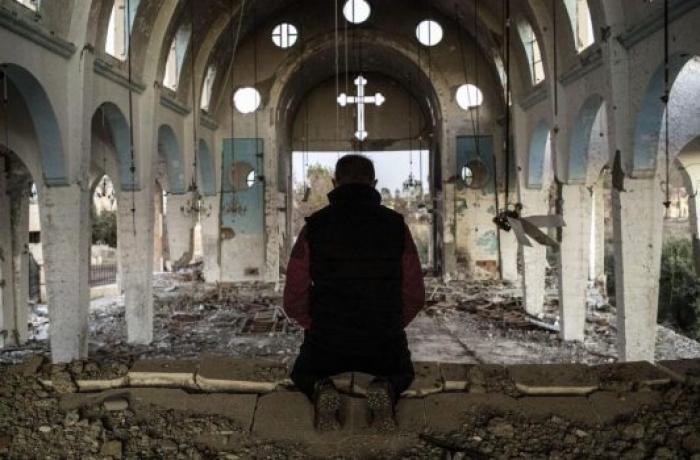For the Maronite Archbishop of Damascus, Msgr. Samir Nassar, today the scenario is “dominated by chaos”. Economic devastation adds to the war. Victims, displaced people, missing people, destroyed buildings are still open wounds. The contribution of the local Church and works of charity in the fields of healthcare, education and pastoral care.
Just as it is “easy and quick” to destroy a country “down to its foundations”,it is just as “difficult and slow to try to rebuild it. […] Even if the world has forgotten Syria, the Lord watches over the nation and His people and will not let His ship sink ”.
In his Lenten message the Maronite Archbishop of Damascus Msgr. Samir Nassar describes the almost insurmountable hardships his people face after years of economic deprivation and bloody conflict. In this period of fasting and prayer that prepares us for Easter, the prelate observes the “scenes of desolation” in the Arab country,and once again afiirms that the local Church is ready to take up the challenge of rebirth and reconstruction.
This challenge takes shape and substance in “works of charity in the field of healthcare, education, a pastoral program dedicated to young people, family mediation and help for families in greatest difficulty, which is not just economic”.
Below the full text of the Lenten message from the Maronite Archbishop of Damascus.
A shipwrek
The war in Syria is the most cruel seen in the world since the 2nd World war.
With the diminishment of violence an economic disaster has overtaken the people: they feel that the little hope which they had in life is gradually fading away and that suffering appears to be all too present.
Such a chaotic scene:-
1) 950,000 families living with death.
2) More than 200,000 people have disappeared – among them 2 Bishops and 4 priests – and a nightmare for those parents and friends who do not know what has happened to their loved ones.
3) 13,000,000 refugees from different areas who live in misery and uncertainty.
4) 95,000 people with amputated hands and feet or paralysis living in a country which is unable to cope with these problems which are both psychological and medical.
5) Innumerable dwellings damaged or destroyed; ruins everywhere like dead towns, which have become camps for refugees and the homeless.
6) The situation is such that the people are choked by blockades and sanctions, thus limiting the help they can receive from outside.
The collapse of the value of the local currency and galloping inflation coupled with the Covid 19 virus now make up the present situation.
Faced with these scenes of desolation the Church in Syria does not remain a spectator: she has facilitated a Synod of Renewal which aims at following the light of the Holy Spirit in many ways. These are marked by efforts in promoting health care, education, a pastoral programmer for the young, family guidance, and advice and help for troubled families; these are consistent with the help given to those who have been affected the most materially by the tragic disintegration of the country. Evenings of adoration figure highly in the search of what the Spirit is saying.
How quick and easy it is to destroy a country but so difficult and slow to rebuild it. What a terrible and deep wound!
“Master, don’t you care that we are about to perish?” Mark 4, 35
Even if the world forgets Syria the Lord watches over it and will see that it will not sink and disappear.
By: Samir Nassar
Source: heraldmalaysia.com






